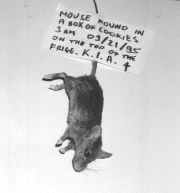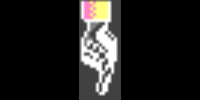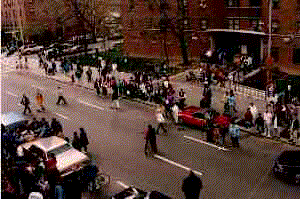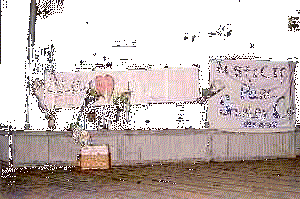 |  Now I live in New York city in El
Barrio (Spanish Harlem), where
I can observe with macabre amusement similarities between ethnic hatred and
racial hatred. The land of the free, home of the brave, doesn't really
want me, either. I guess, I am probably too American for the U.S., too. But
there is no more places on this planet to be "discovered", and I can't go to Mars,
yet, so I'll have to stay here, despite fantastically
disappointing experiences I had with such a diverse bunch of corporate
establishments like Voice Of America, Columbia University and Wired
magazine. This sounds like it is straight from the "My life is worse than
yours" TV show by Charlie Peres. Now I live in New York city in El
Barrio (Spanish Harlem), where
I can observe with macabre amusement similarities between ethnic hatred and
racial hatred. The land of the free, home of the brave, doesn't really
want me, either. I guess, I am probably too American for the U.S., too. But
there is no more places on this planet to be "discovered", and I can't go to Mars,
yet, so I'll have to stay here, despite fantastically
disappointing experiences I had with such a diverse bunch of corporate
establishments like Voice Of America, Columbia University and Wired
magazine. This sounds like it is straight from the "My life is worse than
yours" TV show by Charlie Peres.
I while my life as a lifeguard at the pool with my laptop, which is not as bad. Only it doesn't really pay ones rent. However, it leaves plenty of opportunity to think and scream. |
 |  |  |
 This is a street arrest in Harlem. Actually, this one happened right underneath my window - very conveniently for taking pictures. This happened on
April 25, 1997, during the street demonstrations a day after the tragic death of Shirley Colon. 33 years old woman died after falling 18 flights down off the roof of the housing project on the corner of 109th and Lexington. Police claims it was a suicide. Neighbors swear they saw homicide unit removing handcuffs from the corpse. Official story goes: a despondent woman was on the roof, tenant living at the top floor heard nervous pacing above and called the police. Police came. She jumped. Oh boy, did she jump - she jumped so fiercely that she landed way up in the playground. Fox 5 which reported the news the evening of the death, missed to show a little shrine put up immediately outside of the "fall area": it said - oppose police oppression. It disappeared in less than an hour.
This is a street arrest in Harlem. Actually, this one happened right underneath my window - very conveniently for taking pictures. This happened on
April 25, 1997, during the street demonstrations a day after the tragic death of Shirley Colon. 33 years old woman died after falling 18 flights down off the roof of the housing project on the corner of 109th and Lexington. Police claims it was a suicide. Neighbors swear they saw homicide unit removing handcuffs from the corpse. Official story goes: a despondent woman was on the roof, tenant living at the top floor heard nervous pacing above and called the police. Police came. She jumped. Oh boy, did she jump - she jumped so fiercely that she landed way up in the playground. Fox 5 which reported the news the evening of the death, missed to show a little shrine put up immediately outside of the "fall area": it said - oppose police oppression. It disappeared in less than an hour.
 Anticipating unrest, NYPD swarmed the hood with its light-blue squadron of Community Affairs police (i.e. the guys that kindly ask you to stretch out your arms so that the darker blue uniformed policemen can put handcuffs on you). Community's waryness with the police has roots in the police practice in the neighborhood to first arrest you and then ask questions and read you your rights. Just two weeks beforet this incident, police killed a drug-dealer two blocks away (he wasn't armed, apparently). Political leaders appeared and sought "justice" winning a few votes for the future elections. The death of Shirley Colon is still under investigation.
Anticipating unrest, NYPD swarmed the hood with its light-blue squadron of Community Affairs police (i.e. the guys that kindly ask you to stretch out your arms so that the darker blue uniformed policemen can put handcuffs on you). Community's waryness with the police has roots in the police practice in the neighborhood to first arrest you and then ask questions and read you your rights. Just two weeks beforet this incident, police killed a drug-dealer two blocks away (he wasn't armed, apparently). Political leaders appeared and sought "justice" winning a few votes for the future elections. The death of Shirley Colon is still under investigation.